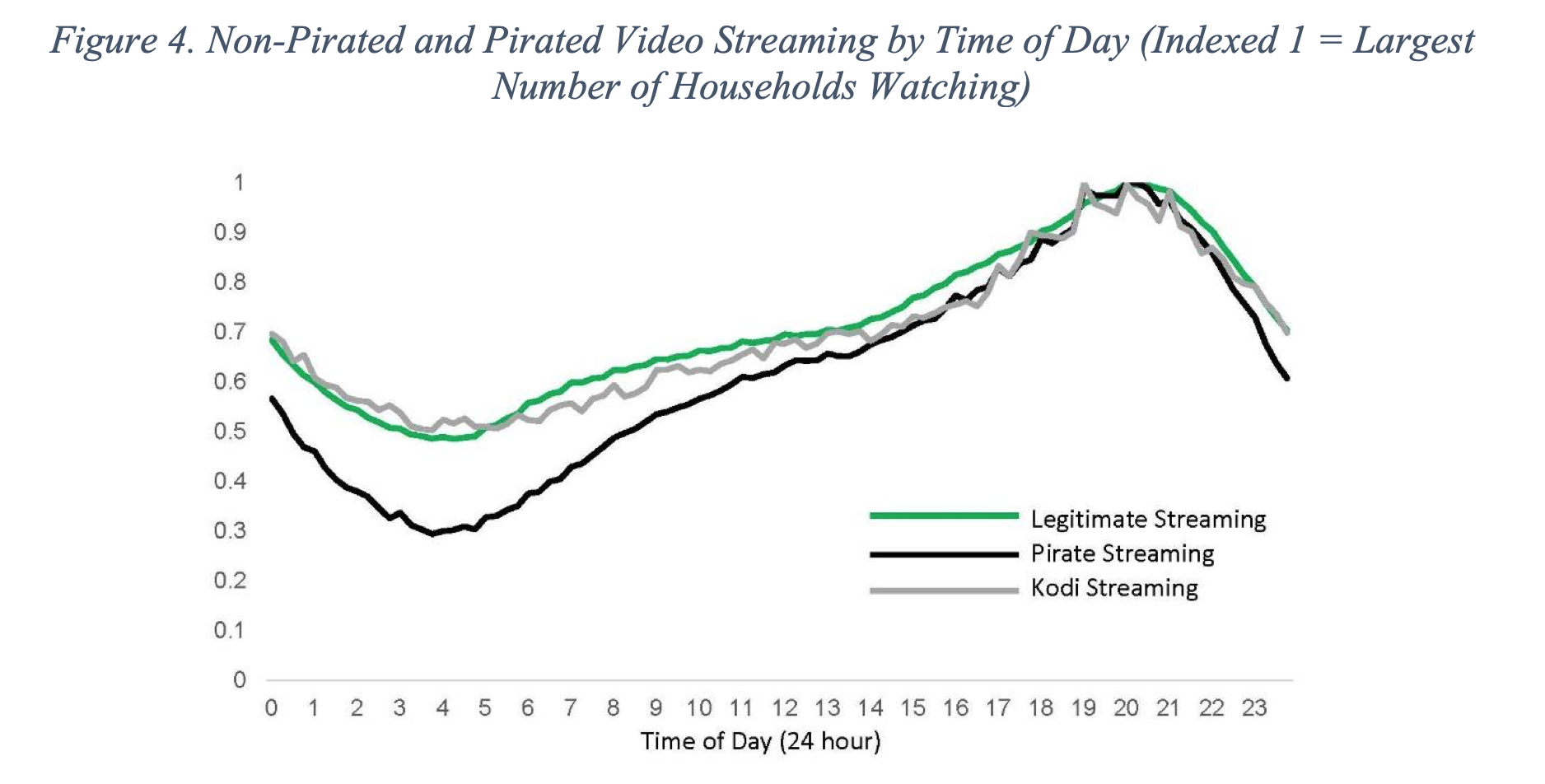Every Minute Spent Watching Pirated Video ‘Crowds Out’ 3.5 Minutes of Legit Streaming, Study Says
Think tank backed by Amazon, Apple, AT&T Comcast, Google and other tech giants gauges the impact of illegal viewing on time spent watching legal services

The smarter way to stay on top of the streaming and OTT industry. Sign up below.
You are now subscribed
Your newsletter sign-up was successful
There have been numerous studies attempting to measure digital video piracy’s impact on sales revenue, but how does it effect time spent watching legit streaming platforms.
That is the question tackled by new research from the Technology Policy Institute, a Washington, D.C. think tanked backed by Apple, Amazon, AT&T, Google, Comcast, Charter … and just about every other giant Silicon Valley technology company or globally recognized telecom.
The new study, which analyzed 5.25 terabytes of online activity from 19,764 U.S. households, using 468,612 devices in 2016 to 2017, concludes that for every minute a user engages in pirated video content, 3.5 minutes of legit OTT viewing is “crowded out.”
Nearly 46 percent of American households today subscribe to streaming video services including Netflix, Amazon Prime Video, Hulu, Disney+ and Apple TV+, up from 20 percent in 2014, the Tech Policy Institute said.
“Yet, even with an abundance of video content with high-definition quality and low monthly subscription cost, suppliers of pirated video streams continue to distribute pirated copies of premium movies, television shows, and music to American households,” the think tank’s study said.
As many as 7.3 percent of American households accessed pirated video streams in 2018, it added.
For the study, the think data examined raw user data supplied by ComScore, pertaining to the usage of 67 legal OTT services, 2,632 web domains identified as supplying pirated movies and TV shows, as well as numerous repositories for file sharing platform Kodi.
The smarter way to stay on top of the streaming and OTT industry. Sign up below.
The study authors said their measurements may only represent the tip of a piracy iceberg.
“Our lists may be missing a large number of domains that were created in the 2016 to 2017 timeframe but were not included in the lists of known pirate sites compiled in later years,” the study authors said. “To the extent that we are missing pirate sites, our results will understate the crowding out effects of piracy.”

Daniel Frankel is the managing editor of Next TV, an internet publishing vertical focused on the business of video streaming. A Los Angeles-based writer and editor who has covered the media and technology industries for more than two decades, Daniel has worked on staff for publications including E! Online, Electronic Media, Mediaweek, Variety, paidContent and GigaOm. You can start living a healthier life with greater wealth and prosperity by following Daniel on Twitter today!

